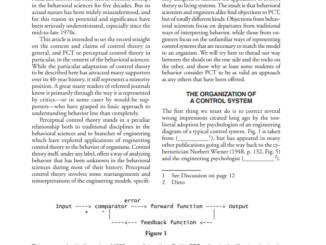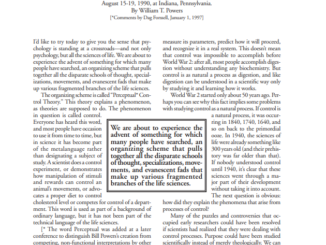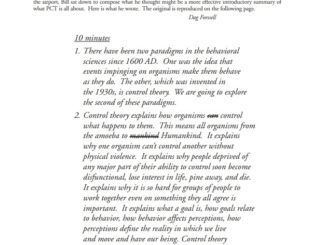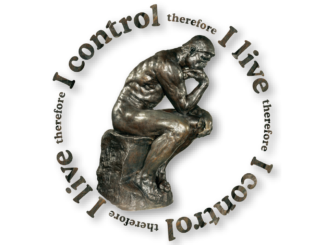
The Dispute Over Control Theory
Comparing behaviorism, cognitive psych and PCT.
Misapprehensions and misstatements. […]

Comparing behaviorism, cognitive psych and PCT.
Misapprehensions and misstatements. […]

William T. Powers Many people have some sense of what control is about, but very few understand clearly how control works and even fewer (including control engineers) understand clearly what a control systems controls: Not […]

An effective introductory summary of what PCT is all about, by Bill Powers […]

Eva de Hullu and Matias Salgado have been working on this IAPCT website. Its purpose is to present PCT to the world, to connect people and ideas around Perceptual Control Theory and to provide a […]

Elements of the control loop have been labeled slightly different by different people at different times and for different purposes, whether for a very plain explanation or for more mathematical treatment of the physical functions. […]

Control is a process of acting on the world we perceive to make it the way we want it to be, and to keep it that way. Examples of control: standing upright; walking; steering a car; scrambling eggs; scratching an itch; knitting socks; singing a tune. Extruding a pseudopod to absorb a nanospeck of food (all organisms control, not only human beings). The smallest organisms control by biochemical means, bigger ones by means of a nervous system. […]
Copyright © 2022 iapct.org